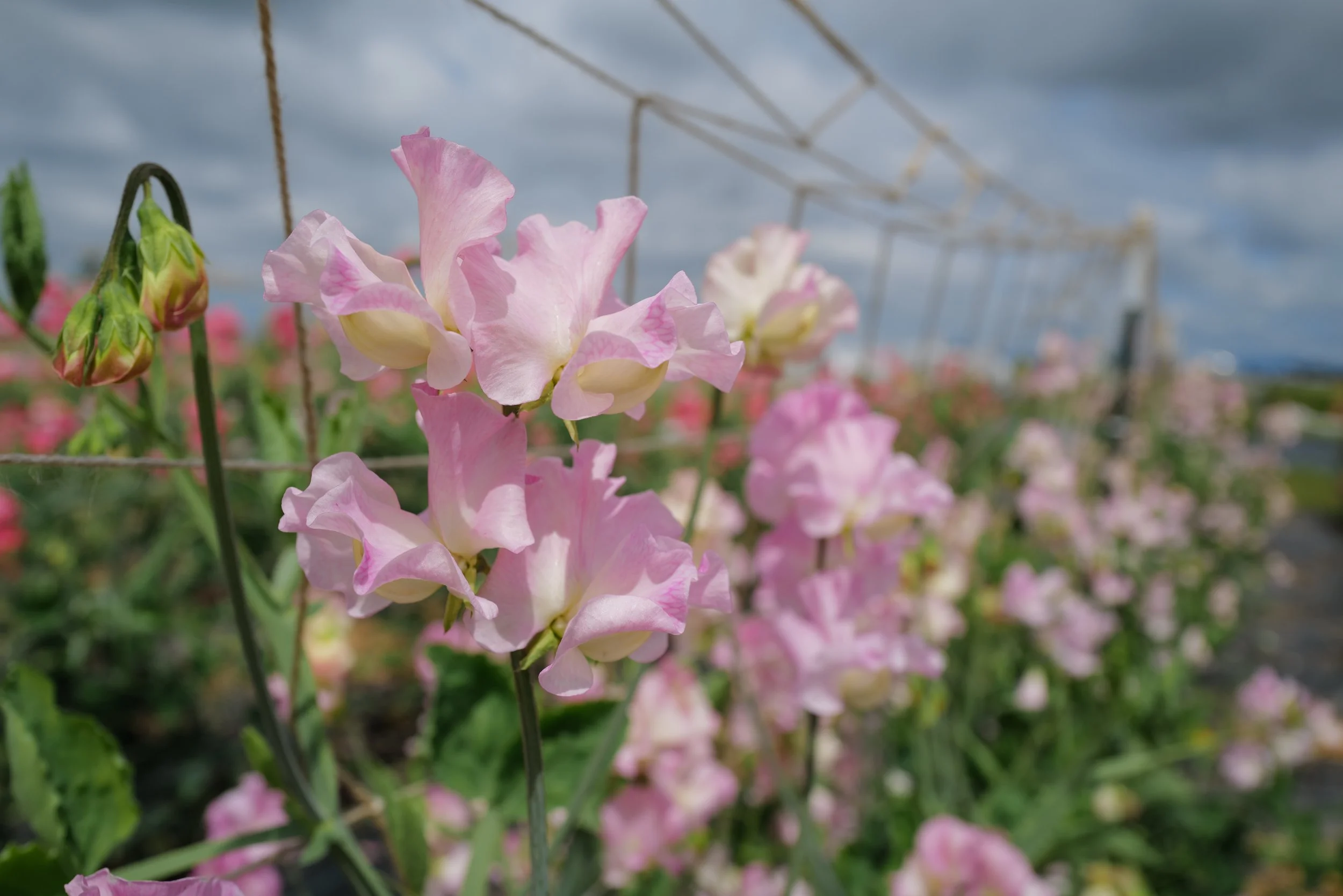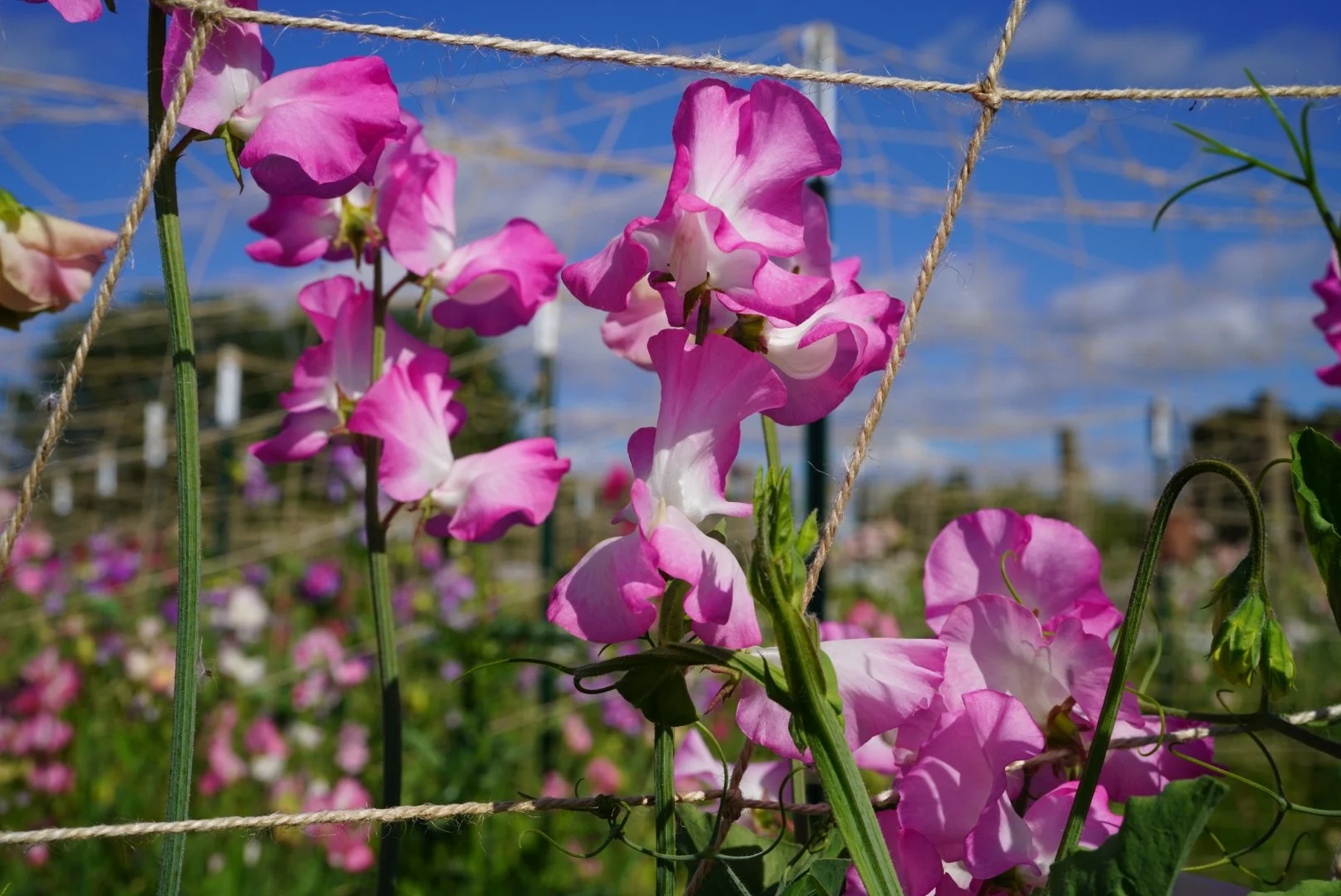Responsibility
Today my phone ran out of battery when I still had about an hour and a half of harvesting to finish and instead of my audiobook, I was left with my thoughts. Not always an amazing place to be stuck, but today, surrounded by thousands of sweet pea plants, a mating pair of American Kestrels, two very curious and potentially upset hummingbirds, and the setting sun over this most amazing Skagit Valley, the thoughts were mostly coherent. And they gathered themselves around a central idea. They gathered themselves around the generosity of the very flowers from which I was pulling seed pods.
Sweet Pea Candyfloss, a reverse-bicolor bred by Dr. Keith Hammett
Many of you know that I spent a good couple of decades as a touring Irish musician. Songs were my first love and the focus of my career. In Irish traditional music, we learn the music by ear rather than by written score. Tunes are given to you if you are an instrumentalist. They are a gift from the generation before you. More importantly, they are an acknowledgement of your capacity to be worthy of them. You either earn them from your teacher or you spend the time sitting at the back of the circle in the weekly pub session listening to your betters and learning the tunes phrase by phrase so that your very bones know it. Then you bring it home and you practice. And you bring it back to your teacher or the session the next week and you check your work. And so on and so forth.
The song tradition is very similar. You earn your songs. Enthusiasm counts for something, but respect counts for almost all of it. If you have a respect for the song, for the lineage from which it was learned, for the story included, for the tradition as larger than yourself, you will be given loads of songs. They won’t be yours though until they become incorporated into your very center, and more importantly, until you pass them along with all of their provenance and significance to the next worthy recipient.
Sweet Pea Lizanne Davies, bred by Darren Everest
Sure, plenty of songs are learned from archival recordings and from the bands releasing albums over the last decades of folk music, but the ones that run deep are the ones that are earned and then given generously. The same could be said about these vines we steward as growers. In the last couple of years there has been an unsettling amount of grabbiness when it comes the world of flowers. From seed sales that knock websites off line and result in a raft of badly behaved social media comments, to the unfortunately called “dahlia wars,” to people shoving their way into in-person tuber sales in order to gather up one of everything so that they can grow it out to sell it to their massive social media audience. So much unchecked ego. It’s pretty gross.
Sweet Peas are generous. From one seed, I will be given the gift of hundreds in a season. And I am lucky. They pay my mortgage and allow me to see a doctor and feed my cats. And I know I am not alone in the enormous amount of respect I have for the breeders and hybridizers that for centuries have worked these seeds from one variety to the hundreds we have available now. Their provenance matters. The spelling of the varieties matters! The work those gardeners did and are continuing to do is important. It takes no fewer than 7 seasons to set a variety with enough stability to send to market. It is my responsibility to know that and to care. If you are also selling seed, it’s your responsibility too. I think we all need to slow down a little bit. Take a beat. Recognize the generosity of the plants and those who grow them. We’re all better as a result.
Sweet Pea Gwendoline, introduced by Unwins in 1999.



